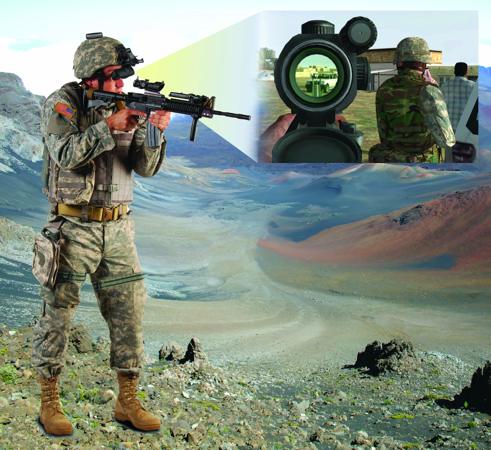Augmented Reality or simply AR is a live, direct or indirect, view of a physical, real-world environment whose elements are augmented by computer-generated sensory input, that enrich the user’s perception of the real world. Although AR is often perceived to be in the visual domain (video or graphics etc), it actually includes the other senses as well such as sound or GPS data.
With its roots dating back to the introduction heads-up displays (HUDs) used in fighter aircraft, Military applications of AR range from live fire training exercises to complex situational awareness systems encompassing features such as friend/foe identification, multiple sensory interfaces, location intelligence and interactive battlefield medical support.
This report provides an in-depth analysis of the global Military AR technology market including an assessment of the wider AR technology market, its applications in the battlefield, recent developments, vendor solutions and revenues forecasts from 2012 to 2016 on a global, regional and submarket scale.
This research addresses the following key topics:
- Military and non-military applications of AR technology
- The Impact of AR technology on the battlefield
- Recent developments and vendor solutions for Military AR technology
- Global and regional market analysis and revenue forecasts for the Military AR technology market from 2012 to 2016
- Revenue forecasts for three major submarkets in the Military AR technology market from 2012 to 2016: Frontline combat, support operations and training
Key Findings:
- AR technology has the potential to completely change the face of military combat, and can effectively eliminate the home ground advantage.
- The Military AR technology market will grow at a CAGR of 25 % over the next four years and will account for revenues worth 8.2 Billion USD by the end of 2016.
- While the U.S will continue lead the market from a regional perspective, leading economies from the Asia Pacific region will significantly ramp up investments in the Military AR technology industry.
Target Audience:
- Military/Government Organizations
- Augmented Reality Technology Vendors
- Investment firms in the Defense Industry
- Telecom Service and Infrastructure Providers










